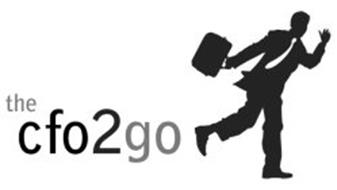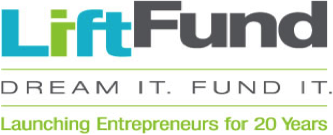What do you do when your business is forcibly shut down from one week to the next, as has happened to first every bar and restaurant owner, and then every other so-called “non-essential” business?
I gathered anecdotal data from Bryan Potts, a San Antonio-based CPA and the owner of CFO2Go, who primarily serves restaurants with consulting and accounting services. It’s been rough. Potts says he lost 75% of his client base in March.
With doors forcibly shut, many of his clients simply can’t pay him. Of his restaurant clients, Potts estimates that 10% are hanging on to their employees in the shutdown, while 40% have cut back as much as possible to just a few essential employees. About 50% of his clients have simply laid off all of their employees.

To begin to get a sense for the scale of the hit to employment numbers this month: The Texas Restaurant Association counts 50,000 restaurants in the state, and counts 1.4 million Texans in the restaurant industry.
In a related story, US weekly jobless claims have hit catastrophic levels every week since late March.
Back in the good old days, in December 2019 – which feels like a decade and a half ago – I sat down with Ryan Salts of the small-business resource center Launch SA.
Salts’ passion and profession is to support entrepreneurs and would-be entrepreneurs as they launch, survive, and then hopefully thrive as business owners.

This Spring, however, is not at all like the good old days. Salts invited me to listen in, as he gathered together entrepreneurs online on Zoom in a part advice-giving session, part therapy session. Potts was not on this call, although he is part of Salts’ mentoring network.
A different mentor on the call – who asked not be named – described the process of filing with the Texas Workforce Commission for a “full company” claim of unemployment. This would streamline the process for her employees, all of whom she assumed would need to apply for unemployment benefits.
A question among the group arose: Is it time – as the classic entrepreneurial wisdom says – to “pivot” your business model? Not necessarily.
Many restaurant owners, for example, have opened up grocery stores, or boosted their take-out and delivery businesses. Customers want this and encourage this, and employees may feel grateful for the ongoing work. But this could be – in fact it probably is – a money loser for restaurant owners. And the result of operating a money-losing pivot over the next few months could be further debt for the owner down the line when normalcy returns.
One of the Zoom participants was Jeni Spring, from The Center For Barefoot Massage. She said a widely suggested pivot runs counter to her business. She runs a San Antonio-based continuing education center to train massage therapists in deep tissue technique. In this lockdown, she’s received advice and pressure to move to an online training model for massage therapists nationwide. But that, fundamentally, is not something she believes in.

“We can’t become something we are not. It doesn’t work to move to online training, since our entire reason for being is that you have to learn massage in person. You simply can’t learn the sense of touch needed to give professional massages online.”
So, the “pivot” is a mixed bag.
What about the other solutions business owners bandied about following the lockdown – such as offering gift cards, as a kind of down-payment on future business that would help finance the present?
Salts offered a cautionary tale.
“I have a downtown friend. He won’t make it through this. His normal traffic is foot traffic. of the first things I thought last week was “’why don’t you do gift cards?’”
“But everything is changing so fast that recommendations from earlier in the week change day to day.” His friend didn’t feel gift cards were ethical, Salts explained, “given that he was of the mindset that he had a 70% chance of not surviving the downturn.”
In December, Salts and I had talked about how hard it is, even in the best of times, for food service businesses to survive. I was curious about a spate of high profile restaurant closures in my neighborhood at the end of last year.
Salts was philosophical and realistic, based on his work with Launch SA: “Are food people good business people? On average? No,” he’d said then. “They’re really good at what they do. They’re creative. They can put together a good menu. But can they run their accounting? Can they cost things out?” That was December.
Now, of course, none of that matters. The best restaurant owner in the world cannot stay open against the COVID-19 lockdown orders.
About the restaurant businesses now shuttered, Salts has an extremely dire prediction.

“Probably 50% of the places that close their doors right now are not going to reopen when this thing is over. Every single person I work with is in a dire situation of triage.”
And with those shut-downs, we are learning, painfully, how essential these small businesses are. Everything is interconnected. As Potts explained: “It shows how far small business employers contribute to the economy. It’s everything from people who clean out the grease traps to lawyers and accountants. I don’t think there’s anybody that’s not been affected by restaurants shutting down.”
Disclosure: I do occasional consulting projects for the non-profit small business lender LiftFund, which partners with the City of San Antonio to run Launch SA.
A version of this post ran in the San Antonio Express-News.
Please see related post:
Post read (168) times.


